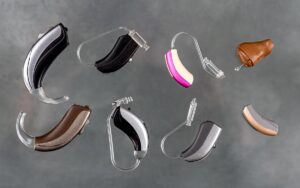Chances are you’ve already observed that you don’t hear as well as you once did. In most cases, we don’t even realize that our choices are negatively affecting our hearing.
With a few simple lifestyle changes, many kinds of hearing loss can be avoided. What follows are 6 tips that will help you protect your hearing.
1. Manage Your Blood Pressure
Persistently high blood pressure is not good. A study revealed that hearing loss was 52% more likely with individuals who have higher than average blood pressure and they’re more likely to have other health issues as well.
Take actions to decrease your blood pressure and prevent hearing damage. See a doctor right away and never disregard your high blood pressure. Following your doctor’s advice, managing stress, eating a healthy diet, and getting regular exercise are all parts of blood pressure management.
2. Stop Smoking
Here’s one more reason to quit: Hearing loss is 15% more likely to affect smokers. Even more shocking: Individuals who are frequently subjected to second-hand smoke are 28% more likely to have hearing issues. The dangerous consequences of second-hand smoke are not only harmful, they also hang in the air for long periods.
If you smoke, protect your hearing and think about quitting. Take actions to reduce your exposure to second-hand smoke if you spend time with a smoker.
3. Keep Your Diabetes in Check
Diabetes or pre-diabetes affects one out of four adults. A pre-diabetic person is extremely likely to develop diabetes within 5 years if they don’t make serious lifestyle changes.
Blood vessels that are injured by high blood sugar don’t effectively carry nutrients. Compared to a person who doesn’t have diabetes, a diabetic person has more than twice the chance of developing hearing loss.
If you have diabetes, take the steps required to properly manage it. Protect your hearing by making lifestyle changes if you are at risk of type 2 diabetes.
4. Lose Some Weight
This isn’t about body image or feeling great about yourself. It’s about your health. As your Body Mass Index (BMI) rises, so does your possibility of hearing loss and other health disorders. The chance of developing hearing loss increases by 17% for a slightly obese woman with a BMI of 30 to 34. For somebody with a BMI of 40 (moderate obesity), the risk goes up to 25%.
Work to get rid of some of that excess weight. Your life can be prolonged and your hearing can be safeguarded by something as simple as walking for 30 minutes each day.
5. Don’t Overuse OTC Drugs
Some over-the-counter (OTC) medicines can cause hearing loss. The danger rises when these medications are taken on a regular basis over prolonged periods of time.
Common over-the-counter medicines that affect hearing include aspirin, NSAIDs (like naproxen, ibuprofen), and acetaminophen. Take these drugs moderately and seek advice from your doctor if you’re taking them regularly.
If you’re taking the recommended dose for the occasional headache, studies indicate you’ll most likely be fine. The danger of hearing loss goes up to 40% for men, however, when these drugs are used on a daily basis.
Always follow your doctor’s recommendations. Your doctor may be able to recommend some lifestyle changes that will decrease your dependence on these medications if you are using them every day.
6. Eat More Broccoli
Broccoli is full of nutrients and vitamins including C and K and also is high in iron. Iron is essential to blood circulation and a healthy heart. Nutrients and oxygen are carried to your cells which helps keep them healthy and nourished and iron is an important part of this process.
For vegetarians or people who don’t eat much meat, eating a sufficient amount of plant-based iron is important. The iron found in plants is not as bioavailable as the iron in meat so people in this group are more likely to be deficient in iron.
Pennsylvania State University researchers examined more than 300,000 individuals. People who suffer from anemia (extreme iron deficiency) are twice as likely, according to this research, to experience sensorineural hearing loss than individuals who have normal iron concentrations. Sensorineural hearing loss is the scientific name for irreversible hearing loss related to the aging process.
The inner ear has tiny hair cells that pick up sounds and connect with the brain to transmit the volume and frequency of those sounds. If these hair cells die as a result of poor circulation or other concerns related to iron deficiency, they won’t grow back.
You’re never too young to get your hearing checked, so don’t wait until it gets worse. Prevent hearing loss by applying these simple tips in your day-to-day life.





